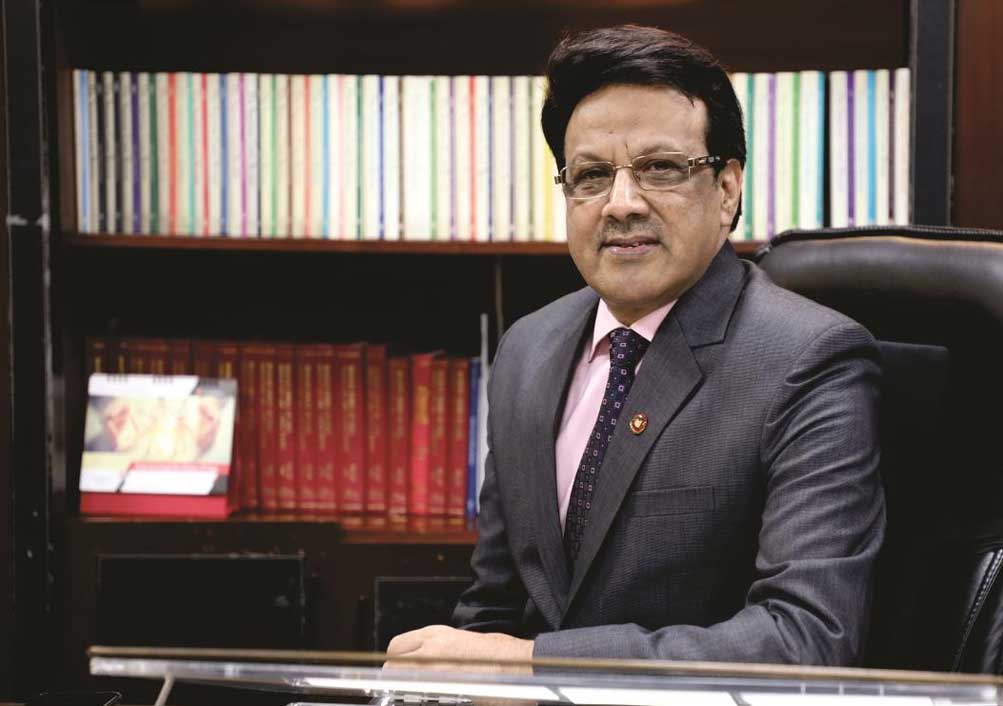In Conversation with Prof. (Dr.) G S Bajpai, Vice-Chancellor, Rajiv Gandhi National University of Law (RGNUL), Punjab

August 03, 2021
With more than thirty years of professional experience as an author, researcher, teacher and administrator, Prof. Bajpai has been appointed as Convenor, Committee for Reforms in Criminal Laws set up by the Ministry of Home Affairs, Government of India, which is tasked with spearheading historic reforms in Criminal Laws in India. He has previously served as the Registrar, National Law University Delhi. He has also served as Professor of Criminology & Criminal Justice (Law); Chair Professor at K.L Arora Chair in Criminal Law; as well as the Chairperson of the Centre for Criminology & Victimology at National Law University Delhi. Prior to that, he served as Professor (Law & Development) & Chairperson at the Centre for Criminal Justice Administration, National Law Institute University, Bhopal.
Q. The coronavirus pandemic has changed the way we live and work, and the change has probably hit educational institutions the most. How has RGNUL, Punjab, adapted to the lifestyle and professional changes brought about by the pandemic?
The Covid-19 Pandemic has drastically impacted educational institutions across the world. It necessitated us to adopt new ways to confront the challenges of planning our academic activities on the campus. RGNUL’s story is quite remarkable in this regard in two ways: (i) the University oriented the teaching staff into a new technology of online classes by utilizing advanced software in the conduct of classes; (ii) the University has been conducting its examination in an online mode in real-time framework and this model is something which many institutes in India might not have adopted so far.
Q. How helpful a role has technology played in ensuring that your students’ education doesn’t suffer during the pandemic-induced lockdowns?
All the initiatives mentioned above involved an active use of technology which mainly includes the software. It is noteworthy that the university organized a special Workshop for the teachers to equip them with recent digital tools for virtual classrooms and competent use of Information Technology (IT) in the conduct of classes and other academic activities.
Q. You have expertise in Criminology and Criminal Law. In India, the criminal justice machinery is overburdened — starting from an overworked police force to mounting backlog in courts and overcrowded prisons. What kind of reforms would you recommend to ensure that our criminal justice system is reformative and rehabilitative, rather than punitive?
I am of the view that the criminal law in the country needs to be simplified a lot and the criminal process is required to be oriented in a manner so that those who are in the disadvantaged class have better chances to access the justice system. To explore alternative modes of disposal of cases by relying on non-punitive and community-based sanctions also becomes imperative in the present times.
Q. Coming to another area of your expertise — Victim Justice. In India, the concept of victim rights is often disregarded as the major focus is shifted to the accused rather than the victim. In a nutshell, what is your opinion on the concept of Victim Justice in India? Would you recommend that Victim Justice be made an integral part of our criminal justice system?
Victim Justice has not been a top priority in our system. The laws and processes now need to be geared more and more towards the victim of crime in keeping the global trends in mind. Justice to the victim will bring the much required balance in the criminal process and will also fulfil the constitutional guarantees to all the stakeholders.
Q. You have often interacted with faculties at law schools and other institutions abroad. Do you think there is a difference between the way academics in the legal profession function in India and the developed countries?
India is now significantly addressing the concerns relating to quality legal education, as it happens in the developed countries. However, there is a long way to go. In the Western world higher education is an important priority. The Indian State requires to spend more significantly on higher education.
Q. You have earned a doctorate as well as a post-doctorate from Leicester University, UK. In your opinion, in which areas are law schools in India lagging behind especially in comparison to those in the West? What needs to be done to improve the knowledge, skills, attitudes or professional expertise of law students in our country?
Law Schools in India lack capable faculty. This is the time to augment the scholarship in the legal field by deploying incentives to teaching and research. The professional expertise needs to be channelized into the policies such as making the faculty contribution more and more relevant. The component of research in law school is on the back seat and intensive efforts are now essential to prioritize it.
Q. On the personal front, what do you like to do to de-stress when you are not working?
Reading fiction/non-fiction and listening to music is something that provides succor and is definitely an important pursuit of selective engagement.
Sign up for our weekly newsletter to stay up to date on our product, events featured blog, special offer and all of the exciting things that take place here at Legitquest.




Add a Comment